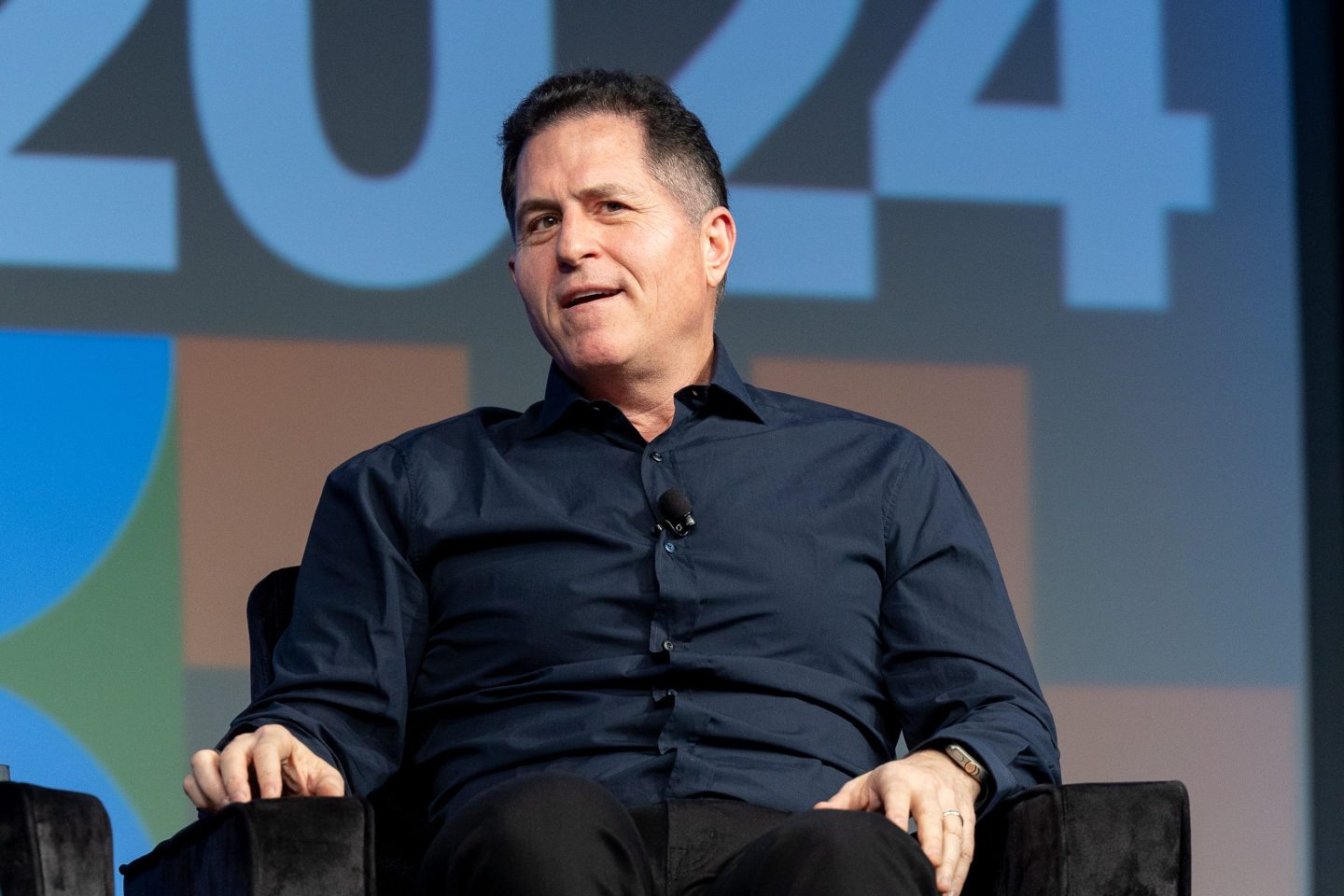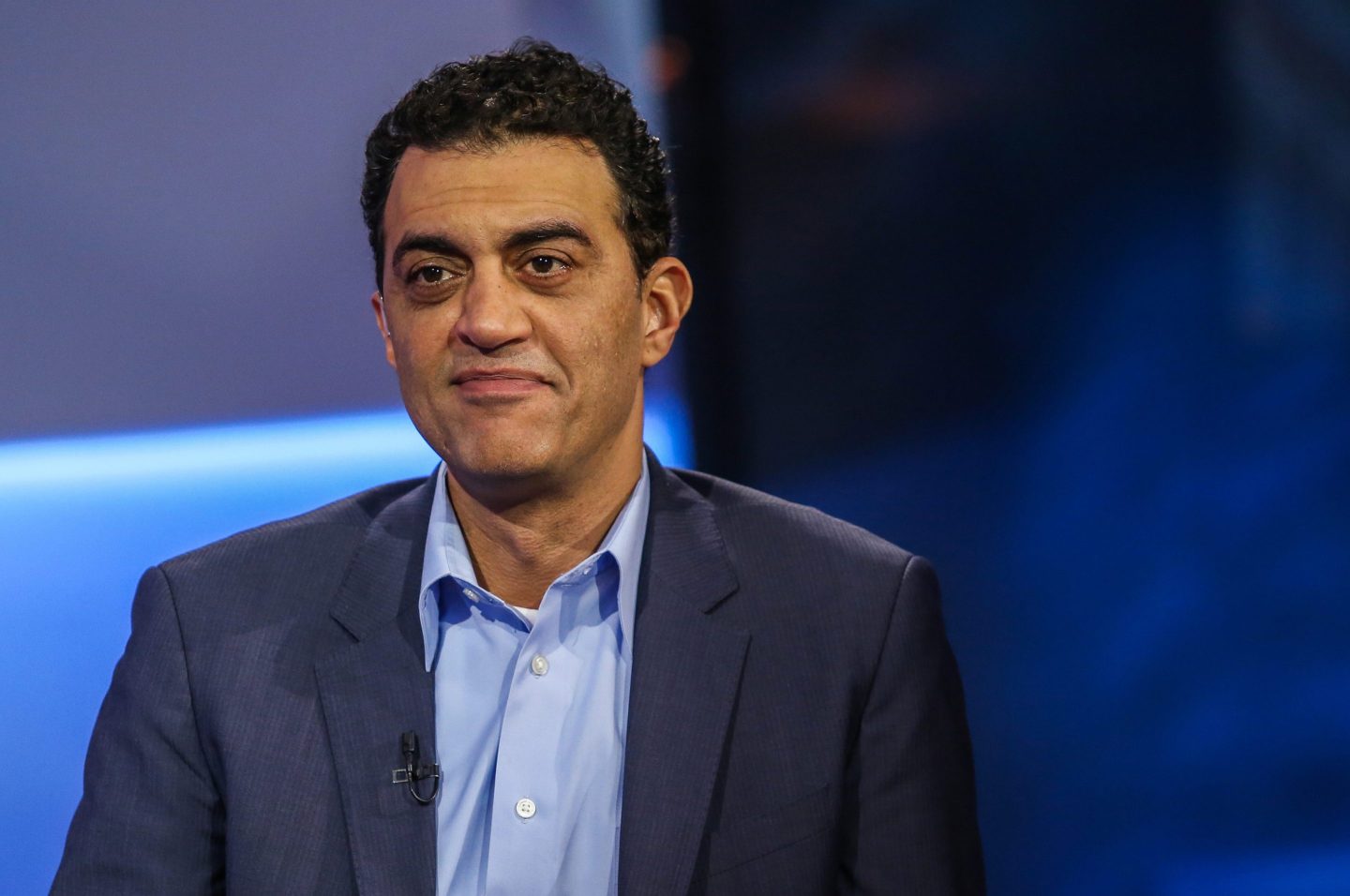Michael Dell has been in the PC game for 40 years—in fact, he famously helped launch the PC revolution as a college student in the 1980s. So while investors were disappointed when executives at his namesake company recently acknowledged that customers have not shifted to the new generation of AI-enabled PCs as quickly as they expected, the Dell founder and CEO tells Fortune he is not concerned.
“I’ve seen this movie a couple times before, and what’s interesting is that the refreshes are usually underestimated, sometimes they go a little bit faster, sometimes a little bit slower,” he said during a recent in-person interview in New York in advance of the company’s product announcements slated for the Consumer Electronics Show (CES) in Las Vegas next month. The latest round of corporate customers refreshing their PCs is “definitely delayed,” he admitted, but added that it’s not a question of if you’ll get a new PC, it’s a question of when enough new features and capabilities are offered.
“Our job is in every turn of the crank, every new generation, pile on enough new features that enough users say, ‘Yeah, it’s time,’” he said.
Dell’s AI-enabled PCs integrate neural processing units (NPUs), which are specialized processors that allow PCs to execute complex AI tasks faster and more efficiently. The NPUs also give the PCs better power efficiency, which extends battery life, and provide improved security since data is kept on the device. In addition, Dell’s AI PCs come with built-in AI applications such as Microsoft’s Copilot.
For the executive responsible for replacing the PCs at a giant company, he explained, not having an AI PC would be “a mistake,” he said. “I don’t hear skepticism about that from our customers at all.”
When it comes to AI, however, Dell is seeing far greater current success with its infrastructure solutions group, which saw an 80% revenue jump in the last quarter, driven by AI-server sales. For example, Dell is partnering with Elon Musk’s xAI on its new Colossus supercomputer in Memphis, deploying servers with tens of thousands of Nvidia AI chips.
“We’ve got a big team there … that are resident in the facility to make sure everything’s working,” said Dell. He added that the opportunities in supplying servers go beyond big model companies like xAI, OpenAI, Google, and Meta. In addition, there are “sovereign AIs”—that is, AI systems developed, deployed, and controlled by individual nations or governments, often created to address concerns about dependence on foreign technologies.
“Pick a country ranked by GDP, the [top] 49 other than the U.S., they all need one,” he explained. “They want their culture, their language, and their beliefs, instantiated within their own AI. They don’t want this data to go off somewhere else. They don’t want it to be trained by something from California.”
But whether it is AI-powered data centers or PCs, at the end of the day all of it requires data, computing, and networking, which is all in Dell’s wheelhouse.
“We didn’t make up this game, but you happen to need a lot of our stuff to make it work,” said Dell, adding that the company has every intention to keep playing. “We are the biggest and best in the world at doing this,” he said. “This is kind of our job.”













